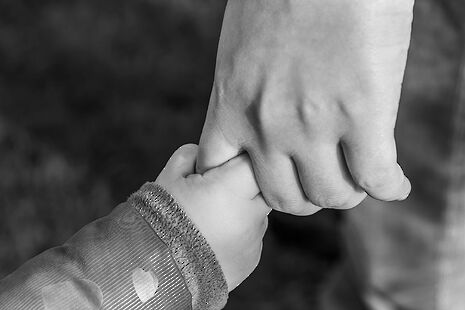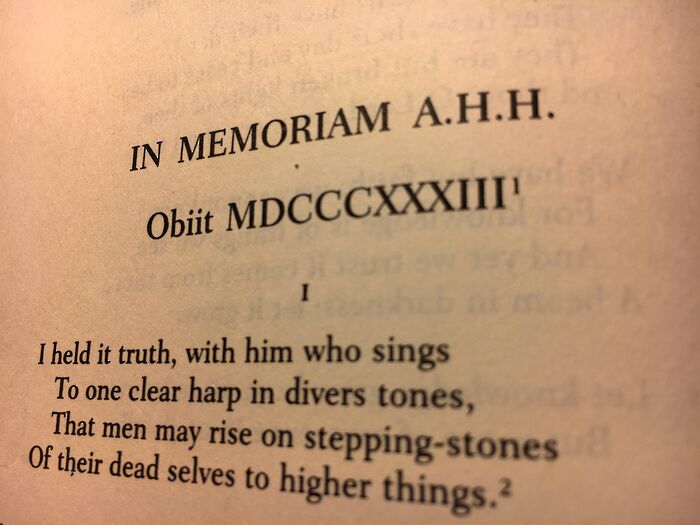People flock to grief, and it can be ugly
“It’s confusing in that you know so many of these people do want to help”: columnist Ana Ovey on how to say the right thing at the right time

Counted with the best advice I can give anyone bereaved, recently or not, is the acknowledgement that people are going to say the wrong thing, a lot. People will, out of discomfort or ignorance, blurt out something they ought to immediately regret. Or they’ll spend minutes thinking of something to say, and how to say it, and still miss the mark. Even over written word, via message or text, I found numerous people saying things, in an attempt to comfort me, that I found quite simply unpalatable.
An ugly side of grief that needs acknowledging, is that people flock to it. After my dad’s death, I felt like a new attraction, something for people to gawk over on Facebook as they tagged me in things or sent messages I couldn’t give answers to, that I didn’t want to answer honestly.
"Griefsters can get poked and prodded into sharing things they haven’t disclosed with their closest friends"
It’s confusing in that you know so many of these people do want to help, and don’t understand what a ridiculous question ‘are you okay?’ is, at a time of absolute heartbreak. It’s confusing because you don't want to be angry. It’s confusing because for as many messages as there are from people who, it seems, are vicariously enjoying aspects of your sorrow, there are dozens more from people you are genuinely touched have got in contact with you.
When grieving and seeing people in person, it becomes even more uncomfortable. Griefsters can get poked and prodded into sharing things they haven’t disclosed with their closest friends; I’ve felt forced to cry in conversations I was trapped in, with people I hardly knew or felt comfortable with. Other times, after such horrible interactions, I’ve been too drained to share with people I’ve wanted to open up to. The effects are more confusion, more resentment, little or no healing: another painful interaction, and another interaction with a genuinely invested friend left untapped.
After my first column, my friend introduced me to another friend of hers whose dad had also died. We spent a lot of hilarious, cathartic time complaining, venting, eye-rolling at the terrible things people had said to us since, and I began to allow myself to feel frustration at the slip-ups people make in talking at you, rather than with you, about loss.
"Supporting someone grieving requires two things: empathy, and a refusal for self-indulgence"
I wrestle continuously with the pain it causes to hear people say the wrong thing to my family or to me. I am often exasperated by the attempts of others to speak to me of death. I’ve gone over the most offensive sayings I’ve heard, trying to laugh it off. And, certainly for me, this is a good way of coping. But the reality is that hearing the wrong thing at the wrong time can do so much damage; damage to a day’s, a week’s, a month’s progress in healing. It can be a bump in the road or an all-out car crash. It can send someone grieving into a swirl of ugly and incommunicable thoughts, cause coldness, dissociation, cause a day or a week’s worth of depressive unproductivity—and grim as it may sound, unproductivity because of grief is no good thing, at Cambridge. Even if a griefster ought to be entitled to it.
All of this comes across as rather damning. But the truth is, supporting someone grieving requires two things: empathy, and a refusal for self-indulgence. Someone bereaved might not want to, might not be able to, share with you the finer points of their loss. Don’t expect them to do so. But for however many painful, stilted, insincere interactions I’ve had with people who haven’t connected with my pain, I’ve been blessed to have gentle, invested, compassionate conversations with kind-hearted people who, in asking me how I was, genuinely wanted to know the answer. I’ve had people say things that have touched something raw in my heart in the best of ways—‘I bet he’d be so proud of you!’ ‘You’ve been so brave’, ‘I remember when your dad and I…’
People can say appalling things. And then, people can say amazing things—things that validate and comfort in ways better than you could have hoped. A few months after my dad died, on a particularly bad day, my mum reminded me of a truth I’m always glad to remember: ‘There’s not a tear wasted over him’. So, to anyone trying to support someone grieving, the best things you can do are validate their pain. In so doing, you may perhaps ease it. It seems like a minefield, navigating conversation with someone who’s just suffered the death of a loved one. It feels the same way to people grieving, and we can sense your apprehension. But, in gently trying to understand, in acknowledging ‘hey, I don’t know what to say’, ‘I don’t want to say the wrong thing’, ‘I want to be here for you’, you do so much for someone in mourning. Language is limited. Love is not.
And to people grieving: you’re going to hear people say the wrong thing. It’ll hurt, it might cause you to spiral, even briefly, somewhere you don’t want to go. But cling tightly to the good things people say to you. Be unafraid to express your sadness to people you can share it with. Be unafraid to withhold it from people you cannot. And, in the wisdom of my mother, feel entitled to your sadness. There is not a tear wasted
 News / Eight Cambridge researchers awarded €17m in ERC research grants27 December 2025
News / Eight Cambridge researchers awarded €17m in ERC research grants27 December 2025 News / Downing investigates ‘mysterious’ underground burial vault 29 December 2025
News / Downing investigates ‘mysterious’ underground burial vault 29 December 2025 Lifestyle / Ask Auntie Alice29 December 2025
Lifestyle / Ask Auntie Alice29 December 2025 Sport / Hard work, heartbreak and hope: international gymnast Maddie Marshall’s journey 29 December 2025
Sport / Hard work, heartbreak and hope: international gymnast Maddie Marshall’s journey 29 December 2025 Interviews / Meet Juan Michel, Cambridge’s multilingual musician29 December 2025
Interviews / Meet Juan Michel, Cambridge’s multilingual musician29 December 2025









